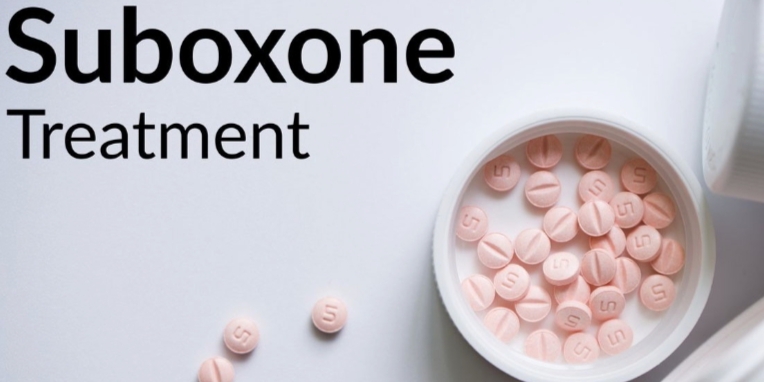
Congratulations on completing your Suboxone treatment at a clinic! This achievement marks a significant milestone on your journey to recovery and lasting sobriety. Nevertheless, it’s crucial to remember that the road to a sober life doesn’t end here.
This blog post will delve into essential tips and strategies to help you maintain your hard-earned sobriety after Suboxone treatment. From building a strong support system to developing healthy coping mechanisms, let’s explore the tools and techniques you need to navigate this new chapter of your life with confidence and resilience.
Tips for Staying Sober After Completing Suboxone Treatment
- Develop a strong support system: Surround yourself with positive influences and people who understand the challenges of recovery. This may include family, friends, therapists, or support groups like Narcotics Anonymous. Having a network of individuals who can empathize with your experiences will make staying accountable and resisting temptation easier.
- Prioritize self-care: Taking care of your physical, emotional, and mental well-being is crucial during your post-treatment journey. Ensure you sleep well, eat a balanced diet, and exercise regularly. Additionally, practice stress management techniques such as mindfulness, meditation, or yoga to maintain a healthy mental state.
- Connect with Confidant Health: Partnering with organizations like Confidant Health can provide additional resources and support to maintain sobriety. They offer tailored services to meet your unique needs and help you confidently navigate your recovery journey.
- Establish a daily routine: Structure and routine can provide stability and help prevent relapse. Create a daily schedule incorporating work, hobbies, self-care, and social activities to keep yourself occupied and focused on your sobriety goals.
- Identify and avoid triggers: Recognize situations, places, or people that might trigger the desire to use opioids again. If possible, develop a plan to cope with these triggers or avoid them altogether.
- Seek ongoing therapy: Regular therapy sessions with a professional counselor can provide valuable support and guidance as you navigate your new sober life. They can help you address any underlying issues that might contribute to your addiction and assist in developing healthy coping mechanisms.
- Set short-term and long-term goals: Establishing personal and professional goals can provide a sense of purpose and direction, which is essential for maintaining sobriety. Break these goals down into smaller, achievable steps to keep yourself motivated and engaged in your progress.
- Give back to the community: Volunteering or participating in community projects can provide a sense of accomplishment, purpose, and belonging. Helping others can also help you maintain perspective on your own journey and reinforce your commitment to sobriety.
- Embrace sober activities: Discover new hobbies or interests that don’t revolve around substance use. This might include joining a sports team, attending cultural events, or learning a new skill. Engaging in sober activities can help fill the void left by addiction and create positive associations with your new sober lifestyle.
- Celebrate milestones: Acknowledge and celebrate your achievements in recovery, no matter how small they may seem. This helps boost motivation and reinforces the positive changes you’re making in your life.
- Stay vigilant and be prepared for setbacks: Recovery is a lifelong journey, and it’s essential to be prepared for the occasional setback. If you find yourself struggling or experiencing a relapse, reach out to your support network and professional help immediately. Remember, setbacks don’t define your journey; how you respond to them truly matters.
By incorporating these tips into your life after Suboxone clinic treatment, you can build a strong foundation for lasting sobriety and continue to grow in your recovery journey. Remember, you are not alone; support is available to help you succeed.
The Importance of Continuing Care and Support
The Importance of Continuing Care and Support
Continuing care and support play a crucial role in the long-term success of individuals in recovery from substance abuse. Addiction is a complex, chronic condition that requires ongoing attention and management, even after initial treatment. By engaging in continuing care and support, individuals can maintain their sobriety, develop healthy coping mechanisms, and address any underlying issues that may have contributed to their addiction.
Furthermore, a strong support system can provide encouragement, accountability, and a sense of community, which can be invaluable in preventing relapse and propelling individuals toward a fulfilling, substance-free life. Ultimately, the importance of continuing care and support cannot be overstated, as they are central to fostering lasting recovery and personal growth.
Examples of Resources Available to Help You Stay Sober After Treatment
Many resources are available to help individuals stay sober after completing treatment for substance abuse. Here are some examples:
- Support groups like AA and NA for community and encouragement.
- Outpatient counseling or therapy to address underlying issues and develop coping mechanisms.
- Sober living homes for a structured, substance-free environment.
- Holistic approaches like yoga and meditation for stress management and mindfulness.
- Online resources for virtual support and connection.
- Medication-Assisted treatment to manage withdrawal symptoms and cravings.
- Family therapy and education programs foster understanding and support from loved ones.
In summary, many resources are available to help individuals stay sober after completing treatment for substance abuse. By utilizing these resources and tools, individuals can build a strong foundation for lasting sobriety and continue to grow in their recovery journey.
Conclusion
In conclusion, staying sober after completing Suboxone treatment at a clinic is a crucial and ongoing process. By utilizing the various resources and strategies mentioned, such as support groups, outpatient counseling, sober living homes, holistic approaches, online resources, and family therapy programs, individuals can confidently navigate the challenges of sobriety.
It’s essential to remain committed to the recovery journey, engage with a supportive community, and prioritize self-care to maintain long-term sobriety and overall well-being. Remember, the road to lasting recovery may be challenging, but with dedication and the right tools, achieving a fulfilling, substance-free life is entirely possible.
